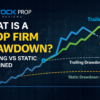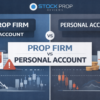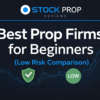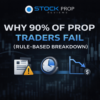In the evolving world of trading, two distinct paths dominate the landscape: proprietary (prop) trading firms and retail trading. Each offers unique benefits and challenges — but which suits you best?
What Is Prop Trading?
Proprietary trading firms allow traders to use the firm’s capital in exchange for a share of the profits.
Pros:
- Access to large capital
- Lower personal risk
- Mentorship and trading tools
Cons: - Profit split with firm
- Strict rules and performance benchmarks
What Is Retail Trading?
Retail traders use their own money and operate independently via broker platforms.
Pros:
- Full profit retention
- Complete freedom and flexibility
- No trading restrictions
Cons: - Limited capital
- No institutional support
- Higher risk of losses
Key Differences to Consider
| Aspect | Prop Firm | Retail Trader |
|---|---|---|
| Capital Access | High (firm-funded) | Limited (self-funded) |
| Freedom | Limited (rules, targets) | High (you set the rules) |
| Risk | Shared with firm | 100% personal |
| Support | Training, tools, community | Self-learning, forums |
Which Is Right for You?
- Choose prop trading if you thrive under structure, want to scale quickly, and don’t mind splitting profits.
- Choose retail trading if you value independence, have some capital, and want full control of your strategies.
Final Thoughts
There’s no one-size-fits-all answer. It depends on your goals, risk tolerance, and trading style. Start small, test both if possible, and evolve based on your experience.











